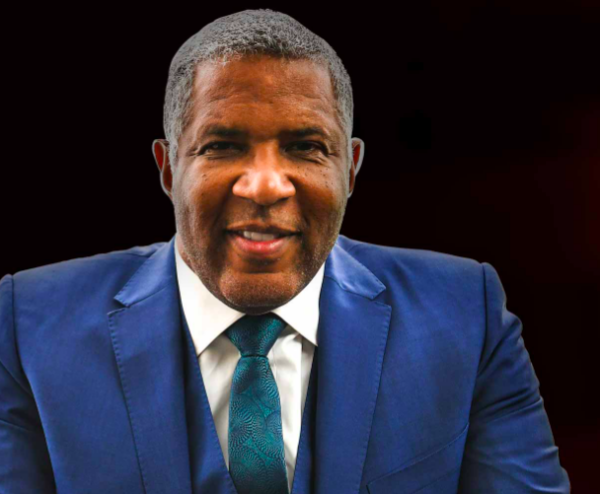The National Historically Black Colleges and Universities Week Conference just wrapped up. Held September 20-23 in Washington, D.C., the conference, put on through a government initiative, has the goal of addressing the issues faced by HBCUS and discussing possible solutions.

Under the White House Initiative on Advancing Educational Equity, Excellence, and Economic Opportunity through Historically Black Colleges and Universities (HBCUs), this year’s event included a fireside chat with Robert F. Smith, founder of investment firm Vista Equity Partners CEO. Joining Smith were Cisco Systems deputy general counsel Saidah Grayson Dill, and Tony Allen, Delaware State University president.
The 59-year-old Smith, with a net worth estimated at $6.7 billion by Forbes, is considered the wealthiest African-American in the country.
During the conversation, Smith discussed his efforts to change the broadband deficit at HBCUs. Nearly 82 percent of HBCUs are in broadband deserts. Smith formed a partnership to change this.
Being in Broadband Deserts Hurts HBCUs
“HBCUs have traditionally liberated more of our community with educational opportunities. HBCUs produce more Black doctors, judges, and engineers than any other set of institutions in the United States,” Smith told AfroTech. “And so enabling them to access more resources and capacity is a critical, critical part of how we’re going to advance not only as people but advance as a nation.”
Smith stressed that HBCUs need not to ask but demand broadband.
“The institutions cultivate and curate an environment that enables our people to be successful as leaders, business people, engineers, doctors, critical thinkers, poets,” he said about what HBCUs produce. “All that’s important. So HBCUs provide that function.”
He continued: “What we need to do is enable those HBCUs more effectively through bringing more resources, most important of which today is broadband. Still where 82 percent of HBCUs live are in broadband deserts. That cannot stand. That is something that we need to make sure that our HBCUs and our community demand of not only the federal government but other companies that can enable all of our students to have broadband access immediately, not five years from now.”
Student Freedom Initiative
Smith’s Student Freedom Initiative (SFI) partnered with Cisco in 2021 to tackle the digital divide, and the networking giant donated $150 million for technology infrastructure and cybersecurity systems at HBCUs. Now for 2022, SFI has joined Connect Humanity, Claflin University, South Carolina State University, and the Orangeburg Department of Public Utilities for a public-private partnership toward digital equity, announced Smith during the conference.
Phase one is complete, and SFI is “seeking an additional $30 million to achieve a 10-times economic return in 70 communities anchored by HBCUs.”
Smith’s History With HBCUs
Smith gifted Morehouse College more than $34 million to pay off the student loan debts of the school’s 2019 graduating class.
“I want my class to look at these alumnus, these beautiful Morehouse brothers, and let’s make sure every class has the same opportunity going forward,” said Smith to the 2019 graduating class.
In 2022, Smith announced a new program that will provide almost $2 million in grant monies to HBCUs students in the sciences.
Smith’s Tax Troubles
Smith recently faced criminal charges over tax fraud. He negotiated his way out of charges over alleged tax evasion in October 2020 by agreeing to a non-prosecution deal to testify against former Reynolds & Reynolds CEO Robert Brockman, who was once his mentor and a seed investor for Vista’s tech buyout fund. Brockman was ultimately indicted in 2020 over $2 billion in alleged fraud. It is the largest tax evasion case in U.S. history, The New York Post reported.
In addition to helping the feds nail Brockman, Smith agreed to pay back taxes and penalties.




